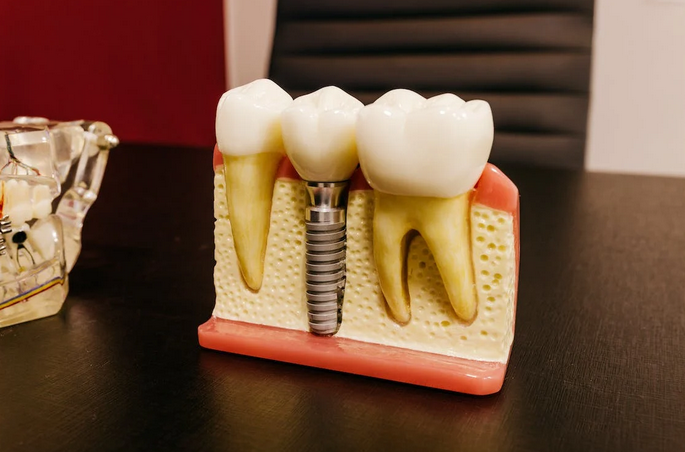
Are you considering getting dental implants? While they can be a great solution for missing teeth, knowing the potential risks is important. Several factors could impact the success of your implant procedure from infection to nerve damage and excessive bone loss. Many people prefer to get their dental implants from dentist Bristol. They are known to provide quality care and treatments for their patients. Here, we’ll explore these risks in detail so that you can make an informed decision about whether or not dental implants are right for you.
Infection
 Infection is one of the most common risks associated with dental implants. While it’s rare, it can happen if proper oral hygiene isn’t maintained after the procedure. Bacteria in the mouth can easily spread to the implant site and cause an infection. Symptoms of an infected implant include pain, swelling, redness around the gums, and even fever or chills in severe cases. If you suspect your implant may be infected, it’s important to seek treatment from your dentist as soon as possible. They may prescribe antibiotics or recommend removing and replacing the implant altogether.
Infection is one of the most common risks associated with dental implants. While it’s rare, it can happen if proper oral hygiene isn’t maintained after the procedure. Bacteria in the mouth can easily spread to the implant site and cause an infection. Symptoms of an infected implant include pain, swelling, redness around the gums, and even fever or chills in severe cases. If you suspect your implant may be infected, it’s important to seek treatment from your dentist as soon as possible. They may prescribe antibiotics or recommend removing and replacing the implant altogether.
Excessive Bone Loss

Excessive bone loss can occur for several reasons, but one common cause is poor oral hygiene. If bacteria are allowed to build up around the implant site, it can lead to peri-implantitis – an infection that attacks the bone and tissues surrounding the implant. Another factor that can contribute to excessive bone loss is overloading. This occurs when too much pressure is placed on the implant, causing it to shift or become loose. Overloading can happen if you chew hard foods or use your teeth as tools. In some cases, genetics may also play a role in excessive bone loss around dental implants. Certain individuals may simply have a predisposition towards weaker bones and tissues.
Nerve Damage
 Nerve damage is another risk associated with dental implants. This is because nerves can be damaged during implant placement into the jawbone or during other aspects of the procedure. The most common symptom of nerve damage after a dental implant procedure is numbness in your mouth, lips, or tongue. You may also experience pain, tingling, or burning sensations lasting for weeks or months. Nerve damage can occur for various reasons, such as excessive pressure on nerves during surgery, incorrect implant positioning, and swelling due to inflammation. However, this condition usually resolves itself over time, but if it persists, then it requires immediate medical attention.
Nerve damage is another risk associated with dental implants. This is because nerves can be damaged during implant placement into the jawbone or during other aspects of the procedure. The most common symptom of nerve damage after a dental implant procedure is numbness in your mouth, lips, or tongue. You may also experience pain, tingling, or burning sensations lasting for weeks or months. Nerve damage can occur for various reasons, such as excessive pressure on nerves during surgery, incorrect implant positioning, and swelling due to inflammation. However, this condition usually resolves itself over time, but if it persists, then it requires immediate medical attention.
Dental implants are a popular and effective solution for missing teeth. However, like any medical procedure, they come with risks. Infection is one of the most common complications and can be easily prevented with proper oral hygiene and regular check-ups with your dentist. Excessive bone loss can also occur if the implant is not properly placed or cared for after placement. This emphasizes the importance of choosing an experienced dental professional to perform your implant surgery and following their post-operative instructions closely. Nerve damage is another potential risk that should not be overlooked. While rare, it can cause significant discomfort and require additional treatment to correct.



